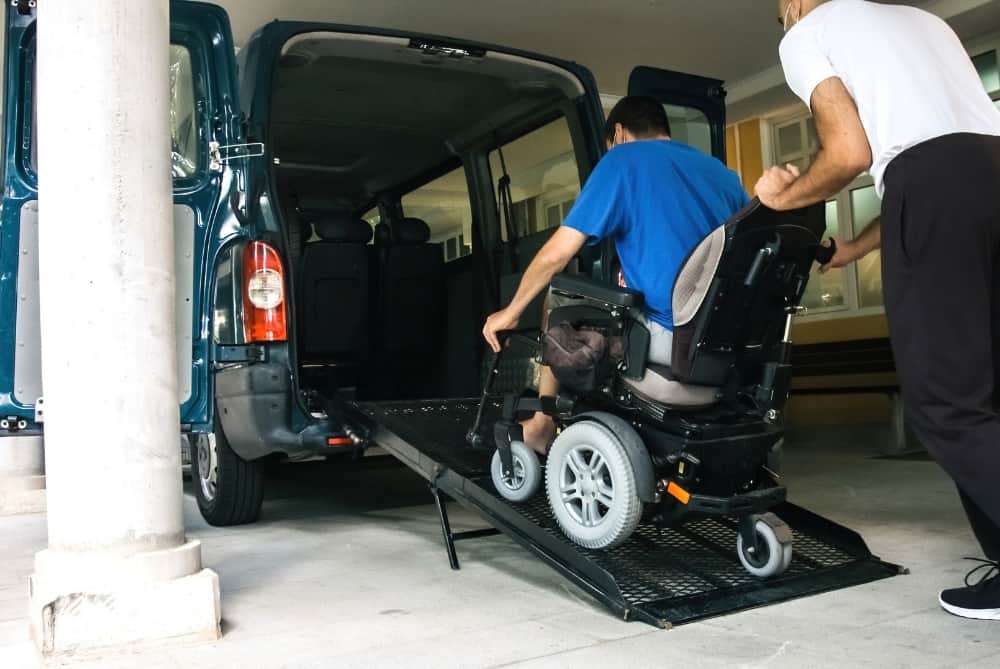NDIS Funding

There are currently more than four million Australians living with a disability, according to the federal government, and until recently there was no national system in place to support their needs.
A report by the Productivity Commission last year recommended the federal government create a national disability insurance scheme, after finding the current system was underfunded, unfair and fragmented.
In 2013, the National Disability Insurance Scheme (NDIS) was created, managed by the National Disability Insurance Agency (NDIA). As of November 2018, there are 310,000 people on the NDIS. So, what exactly is the National Disability Insurance Scheme, and who is eligible to get it and how much does it cost?
What is NDIS ( National Disability Insurance Scheme)?
The National Disability Insurance Scheme (NDIS) is a government funded scheme that helps provide people with disabilities with financial support to them with their goals and plans. The National Disability Insurance Scheme (NDIS) provides support to approximately 460,000 people with varied types of disabilities when it has been fully implemented. People with NDIS funding usually deal with Local Area Coordinators (LACs), Early Childhood Early Intervention (ECEI) co-ordinators, or NDIA planners. They help the participants with accessibility, understanding and navigating the new system. The National Disability Insurance Scheme (NDIS) does pay for these services and supports for people who have a disability.
The NDIS can help pay support funding for individuals based on their needs, including daily personal activities, transport and mobility (such as wheelchairs), access to work and education, household tasks, home and vehicle modifications and therapeutic support. Specific examples of things that may be funded under the NDIS are wheelchairs, speech therapy appointments and healthy meal delivery services.
The National Disability Insurance Agency (NDIA) says there are three kinds of support for people on the National Disability Insurance Scheme (NDIS):

- The core supports budget, which includes consumables (everyday items such as continence aids), low-cost equipment to improve your mobility (such as a walking stick), help with daily activities (such as household cleaning and yard maintenance), social and community participation and transport;
- The capacity building budget, which includes helping participants achieve their goals in areas such as employment (help to find and keep a job), health (exercise and diet advice), education (assessment and training to move from school to further education) relationships (advice to develop positive behaviours and interact with others) and living arrangements (help with finding a place to live); and
- The capital support budget is used to assist people who are unable to work due to a disability.

Who is eligible for the NDIS Funding?
The National Disability Insurance Scheme (NDIS) is a government program that provides financial support to people with disabilities who cannot work. To be eligible for the NDIS, you have to meet the following criteria: You must be an Australian Citizen, A Permanent resident or special category visa holder. You must be aged between 7 and 65; and you must have a significant and permanent disability. To find out if you’re eligible for the NDIS, you can do so by visiting the National Disability Insurance Scheme website.
How do I apply for the NDIS funding?
The National Disability Insurance Agency (NDIA) website has information about how to apply for the NDIS. You will need to provide some basic information about yourself, such as your name, address and date of birth. You will also need to provide some proof of your disability, such as a letter from your doctor or a letter from your state’s department of social services.
During the application process, you would be asked to provide proof that would be evidence of your disability. This would include documents that confirm your primary disability, how this disability impacts different areas of your life, descriptions of past treatments, outcomes and any kind of future treatment options and the expected outcomes. This evidence can be completed by a health professional such as your local General Practitioner, paediatrician, psychologist or allied health practitioner. This evidence should also include your date of diagnosis, details about how long the disability will last, and the treatments that are available.
If your application is accepted, you will attend a planning meeting, where your needs and goals would be discussed. Be sure to take any relevant reports or assessments along with you for this meeting. Your resulting plan is made to meet for your needs. After the meeting, the NDIA will process and approve your plan, and your ECEI co-ordinator, LAC or NDIA planner will let you know when this is complete.


How much funding can I get from NDIS and who runs it?
Under the National Disability Insurance Scheme (NDIS), there is no fixed amount of funding that can be provided to people with a disability. You will need to develop your own plan to meet your needs, based on your individual circumstances. If you have a plan, you can get help from the NDIA.
If you have decided to self-manage your NDIS plan, you would be responsible for doing your daily tasks such as buying the support you require, making regular appointments, managing your funding, keeping invoices and receipts, and being able to show how you have used the funding when your plan is reviewed. This is to be done once every 12 months. You will also need to advise the NDIA of any kind of changes to your circumstances, and participate in the payment auditing, if necessary .
If you do not know how to carry out a particular task yourself, consider hiring a professional to take care of it for you. There are many NDIS Plan Managers who can assist you with planning and organizing your family’s future. The NDIS can also help you find a Plan Manager if you do not know where to start. These options won’t cost you anything and the NDIA will pay for them. A parent, legal guardian, or someone else who is responsible for the care of a child under the age of 18 can manage a person’s National Disability Insurance Scheme (NDIS) benefits. If you think that the person you are thinking of hiring to manage your NDIS benefits is not the right person for the job, you can appoint someone else to do it instead. If you are not able to decide on a person to manage your NDIS benefits, you can also appoint someone else to do so.
What services are not covered by the NDIS?
Some types of support that are not covered by the NDIS would include general living expenses such as rent, bills, food and entertainment. Direct school or study costs (such as general fees or stationary/books required by all students). According to the website, the NDIS also doesn’t cover supports that are already funded or partially covered by Medicare, such as visits to the GP, X-rays or blood tests. You might have to have these items bulk-billed, although some types of appointments or tests may attract a fee, so it’s always a good idea to check this beforehand to have a better understanding of what NDIS can or cannot support. Pre-planning would be always useful.
The National Disability Insurance Scheme (NDIS) does not fund the purchase of gym memberships for people with a disability. If you are claiming your disability as a reason for needing to go to the gym, you will need to provide evidence of this.


Does NDIS affect other payments like Centrelink?
The funding you receive from the NDIS does not come under taxable income and won’t affect any disability support, income support or child support payments you may pay or receive. According to the Australian Taxation Office (ATO), if you are unsure how the NDIS may affect your existing payments or entitlements, contact the NDIA or Centrelink.
According to the NDIS website, transport related supports become part of your NDIS plan, so if you’re receiving a Centrelink mobility allowance, this will cease when your NDIS funding is approved. So yes, you will receive payments from only one source.
Can you use the NDIS Funding for holiday?
You do not need to worry about using your existing NDIS funds while you are on vacation, as long as you do not use them for non-disability related expenses. Your NDIS money can only be used for disability related expenses.

NDIS Services
We Provide a wide Range of services approved by NDIS to all the participants
If You Have Any Questions Regarding Our Services
Or Your Specific Needs, Please Contact Us
Testimonials
We use OSAN Ability on a regular basis for our disability accommodation needs. They have great homes for short term or long term needs and with SDA clients. Thanks for your help.
Sarah MiltonSupport Coordinator
OSAN Ability Assist has been a big game changer for both Abu and family.
I am deeply grateful for the wonderful job OSAN Ability Assist is doing for my brother which has changed my elderly mother's life incredibly . She could not cope in looking after Abu by herself.
We have had very bad experiences with other providers who just didn't care and my brother was suffering tremendously. Thank you OSAN for your help.
Yalda TamorySydney
I have used several providers for disability services in the last three years but I was never satisfied until I met Dr Omer Shahab Khan at OSAN Ability. His team has real compassion for people with disability and their families. I do not have any doubt in saying that staff at OSAN genuinely practice their motto, Quality Care with Compassion. Thanks everyone in the Bella Vista office especially Karuna and Rose..
Ario LeeSydney
I am so grateful for Marina's help I have received, She was super nice, no matter how many questions I asked her. She was open to answering all my questions, Thank you my support worker, Marina.
Sarah AshtonSydney
To OSAN,
thank you because you didn't just give me a house to live in, you gave me a home with true supports that care for me and i'll be forever grateful.
I wish you all a very merry christmas and happy new year.
Sam B Participant
Previous
Next











